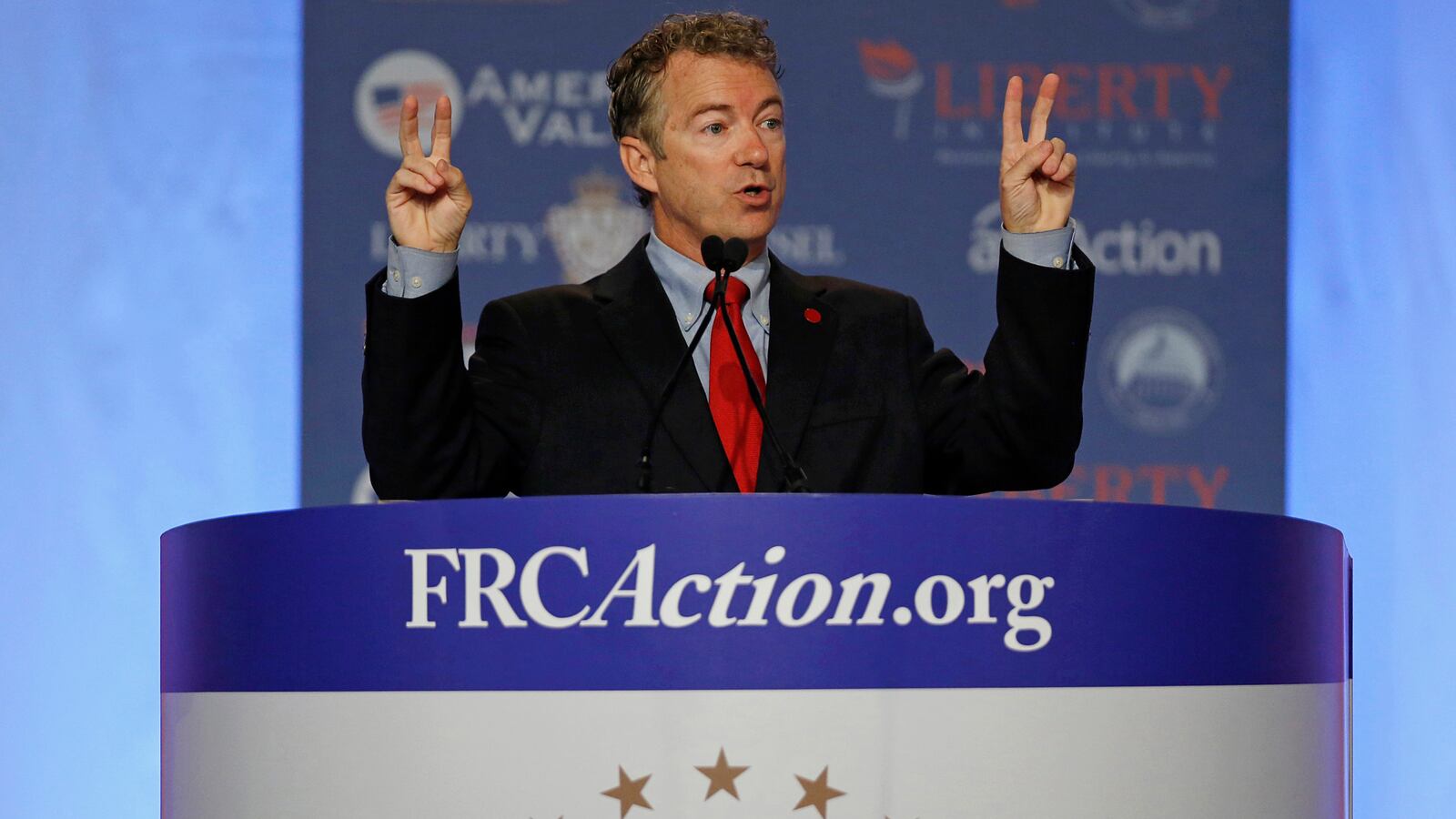Rand Paul and Ted Cruz’s back-to-back speeches at Friday’s Values Voter Summit offered a preview of what the Republican presidential primary would look like should the two senators decide to run for president in 2016.
The Family Research Council, a major social conservative group, hosts the Values Voter Summit in Washington, D.C. each year. As you may have guessed, considering “family” is in its name, the group lobbies against equal rights for the LGBT community, as well as against the right to choose, embryonic stem-cell research, and pornography. This crowd has never been the most natural fit for Paul who, in 2012, told the summit “my faith has never been easy for me. Never been easy to talk about and never been without obstacles.”
But although he’s best known for his libertarian stances, Paul—who is pro-life and believes marriage should be decided at the state level—has long identified as a social conservative. He’s just never been as comfortable discussing social issues as the Mike Huckabees of the world—or, for the matter, the Ted Cruzs.
Cruz strolled out onstage, microphone pinned to his shiny blue striped tie, and delivered his message in his traditional fashion: pacing around the stage, and moving his hands dramatically in the air in a way reminiscent of a televangelist, or someone trying to sell you a blender on the Home Shopping Network.
Cruz wove in and out of scripture, telling the crowd that the Republican Party must “offer a choice, not an echo,” and that “we don’t paint in pale pastels, we paint in bold colors.”
“These are dangerous, extreme, radical times,” Cruz warned. If you call today, Cruz will help to defeat Obamacare; but if you call right now, Cruz will work to abolish the IRS. Call now!
The crowd did not seem to notice Cruz’s blatant pandering—or if they did, they didn’t mind. They were up on their feet so often to applaud the Texas senator that his speech was practically an aerobics class. Paul’s reception, meanwhile, was markedly less enthusiastic.
Red tie and blue shirt-clad Paul walked casually in front of the audience and, like a normal person, stood behind the podium. He calmly offered his vision of an ideology that merges libertarian values with social conservative virtue. Paul’s speech—like most speeches at events like this—touched on a wide-range of topics, and often shifted a bit uneasily between them. He began with foreign policy, weaved into abortion and the persecution of Christians, and then moved back to foreign policy.
Paul predictably criticized Obama for his “arrogance” and for failing to get military action in the Middle East approved by Congress. “If I had been president,” he said—not that he’s running yet!—he would have done it differently, constitutionally.
Although he did warn that the country is in the midst of a “spiritual crisis” that is eating away at its foundation, Paul avoided scripture, electing instead to quote Thomas Paine, the conservative writer Os Guiness, Catholic novelist Walker Percy, and Reagan advisor Don Devine.
Needless to say, Cruz’s performance went over better with the crowd. But while Paul’s continued unwillingness to act like a preacher may not lead to uproarious standing ovations at social conservative conferences, it may be the very thing that convinces other factions of the electorate that he is not a phony.






